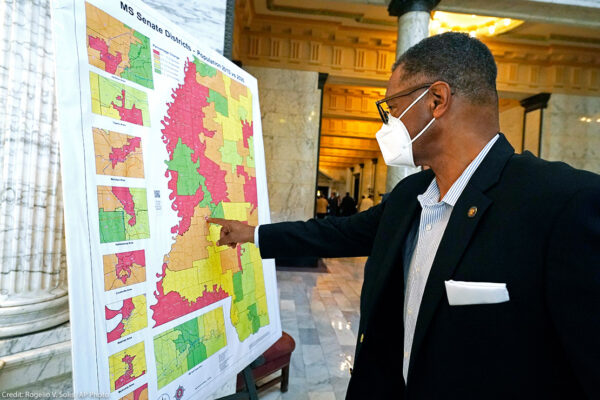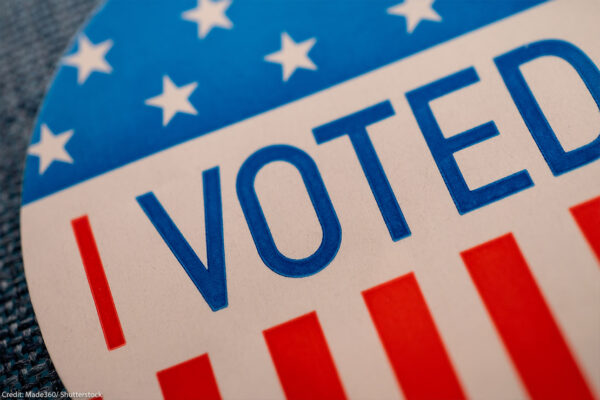Supreme Court Term 2025-2026
We’re breaking down the cases we've asked the court to consider this term.
Latest Case Updates
Ongoing
Updated December 10, 2025
Ongoing
Updated December 10, 2025
Ongoing
Updated November 22, 2025
Ongoing
Updated November 10, 2025
Featured
Court Case
Dec 2025

National Security
Human Rights
FOIA Case Seeking the Trump Administration’s Legal Justification for Deadly Boat Strikes
The Department of Justice‚Äôs Office of Legal Counsel (‚ÄúOLC‚ÄĚ) authored a legal opinion that reportedly claims to justify the Trump administration‚Äôs illegal lethal strikes on civilians in boats in the Caribbean Sea and eastern Pacific Ocean. Media reports indicate that, in addition to claiming that the strikes are lawful acts in an alleged ‚Äúarmed conflict‚ÄĚ with unspecified drug cartels, the OLC opinion also purports to immunize personnel who authorized or took part in the strikes from future criminal prosecution. Because the public deserves to know how our government is justifying these illegal strikes, and why they think the people who carried them out should not be held accountable, the ļž–” ”∆Ķ is seeking immediate release of the OLC legal opinion and related documents pursuant to the Freedom of Information Act.
U.S. Supreme Court
Nov 2025

Voting Rights
Racial Justice
Allen v. Milligan
Whether Alabama’s congressional districts violate Section 2 of the Voting Rights Act because they discriminate against Black voters. We succeeded in winning a new map for 2024 elections which, for the first time, has two congressional district that provide Black voters a fair opportunity to elect candidates of their choosing despite multiple attempts by Alabama to stop us at the Supreme Court. Despite this win, Alabama is still defending its discriminatory map, and a trial was held in February 2025 to determine the map for the rest of the decade.
In May 2025, a federal court ruled that Alabama's 2023 congressional map both violates Section 2 of the Voting Rights Act and was enacted by the Alabama Legislature with racially discriminatory intent.
Washington, D.C.
Oct 2025

Voting Rights
League of Women Voters Education Fund v. Trump
On March 25, 2025, in a sweeping and unprecedented Executive Order, President Trump attempted to usurp the power to regulate federal elections from Congress and the States. Among other things, the Executive Order directs the Election Assistance Commission‚ÄĒan agency that Congress specifically established to be bipartisan and independent‚ÄĒto require voters to show a passport or other citizenship documentation in order to register to vote in federal elections. If implemented, the Executive Order would threaten the ability of millions of eligible Americans to register and vote and upend the administration of federal elections.
On behalf of leading voter registration organizations and advocacy organizations, the ļž–” ”∆Ķ and co-counsel filed a lawsuit to block the Executive Order as an unconstitutional power grab.
U.S. Supreme Court
Oct 2025

Voting Rights
State Board of Election Commissioners v. Mississippi State Conference of the NAACP
Mississippi has a growing Black population, which is already the largest Black population percentage of any state in the country. Yet. Black Mississippians continue to be significantly under-represented in the state legislature, as Mississippi’s latest districting maps fail to reflect the reality of the state’s changing demographics. During the 2022 redistricting process, the Mississippi legislature refused to create any new districts where Black voters have a chance to elect their preferred representative. The current district lines therefore dilute the voting power of Black Mississippians and continue to deprive them of political representation that is responsive to their needs and concerns, including severe disparities in education and healthcare.
U.S. Supreme Court
Oct 2025

Voting Rights
Louisiana v. Callais (Callais v. Landry)
Whether the congressional map Louisiana adopted to cure a Voting Rights Act violation in Robinson v. Ardoin is itself unlawful as a gerrymander.
Missouri
Sep 2025

Voting Rights
Wise v. Missouri
In unprecedented fashion, the State of Missouri has redrawn the district lines used for electing members of Congress for a second time this decade. These new district lines are gerrymandered and will harm political representation for all Missourians, particularly Black residents in Kansas City, who have been divided along racial lines.
Mississippi
Aug 2025

Voting Rights
White v. Mississippi State Board of Elections
District lines used to elect Mississippi’s Supreme Court have gone unchanged for more than 35 years. We’re suing because this dilutes the voting strength of Black residents in state Supreme Court elections, in violation of the Voting Rights Act and the U.S. Constitution.
Louisiana
Aug 2025

Voting Rights
Nairne v. Landry
Nairne v. Landry poses a challenge under Section 2 of the Voting Rights Act of 1965 to Louisiana’s House and Senate legislative maps on behalf of plaintiff Black voters and Black voters across the state.
Ohio
Jul 2025

Reproductive Freedom
Planned Parenthood Southwest Ohio Region et al., v. Ohio Department of Health, et al.
The ļž–” ”∆Ķ, the ļž–” ”∆Ķ of Ohio, Planned Parenthood Federation of America, the law firm WilmerHale, and Fanon Rucker of the Cochran Law Firm, on behalf of Planned Parenthood Southwest Ohio Region, Planned Parenthood of Greater Ohio, Preterm-Cleveland, Women‚Äôs Med Group Professional Corporation, Dr. Sharon Liner, and Julia Quinn, MSN, BSN, amended a complaint in an existing lawsuit against a ban on telehealth medication abortion services to bring new claims under the Ohio Reproductive Freedom Amendment, including additional challenges to other laws in Ohio that restrict access to medication abortion in the state.
All Cases
1,643 Court Cases

Kentucky
Jul 2025
Reproductive Freedom
Mary Poe v. Russell Coleman, et al.
A Kentucky woman who was pregnant and seeking an abortion filed a lawsuit in Jefferson County Circuit Court seeking to restore access to abortion in the Commonwealth by challenging two abortion bans under the state constitutional rights to privacy and self-determination. The case details the severe harms that Kentuckians seeking abortion, like Plaintiff Mary Poe suffer because the government denies them access to the care they need. The lawsuit also requests the court certify a class of all pregnant individuals who seek access to abortion in the Commonwealth but cannot obtain that care because of Kentucky’s abortion bans.
Explore case
Kentucky
Jul 2025

Reproductive Freedom
Mary Poe v. Russell Coleman, et al.
A Kentucky woman who was pregnant and seeking an abortion filed a lawsuit in Jefferson County Circuit Court seeking to restore access to abortion in the Commonwealth by challenging two abortion bans under the state constitutional rights to privacy and self-determination. The case details the severe harms that Kentuckians seeking abortion, like Plaintiff Mary Poe suffer because the government denies them access to the care they need. The lawsuit also requests the court certify a class of all pregnant individuals who seek access to abortion in the Commonwealth but cannot obtain that care because of Kentucky’s abortion bans.

U.S. Supreme Court
Jul 2025
Religious Liberty
Oklahoma Statewide Charter School Board v. Drummond
Nine Oklahoma residents and a nonprofit organization dedicated to supporting public education in Oklahoma filed a lawsuit in July 2023 in state court to stop Oklahoma from sponsoring and funding the nation‚Äôs first religious public charter school, St. Isidore of Seville Catholic Virtual School. The plaintiffs are faith leaders, public school parents, and public education advocates who object to their tax dollars funding a public charter school that will discriminate against students and families based on their religion and LGBTQ+ status, fail to adequately serve students with disabilities, and indoctrinate students into one religion ‚ÄĒ all in violation of Oklahoma law and our country‚Äôs promises of the separation of church and state and public schools that are open to all.
Explore case
U.S. Supreme Court
Jul 2025

Religious Liberty
Oklahoma Statewide Charter School Board v. Drummond
Nine Oklahoma residents and a nonprofit organization dedicated to supporting public education in Oklahoma filed a lawsuit in July 2023 in state court to stop Oklahoma from sponsoring and funding the nation‚Äôs first religious public charter school, St. Isidore of Seville Catholic Virtual School. The plaintiffs are faith leaders, public school parents, and public education advocates who object to their tax dollars funding a public charter school that will discriminate against students and families based on their religion and LGBTQ+ status, fail to adequately serve students with disabilities, and indoctrinate students into one religion ‚ÄĒ all in violation of Oklahoma law and our country‚Äôs promises of the separation of church and state and public schools that are open to all.

U.S. Supreme Court
Jul 2025
Religious Liberty
LGBTQ Rights
Mahmoud v. Taylor
On April 9, 2025, the ļž–” ”∆Ķ and ļž–” ”∆Ķ of Maryland filed an amicus brief with the U.S. Supreme Court supporting the Montgomery County Public Schools (MCPS) in its efforts to ensure that its English Language Arts curriculum is LGBTQ-inclusive.
Explore case
U.S. Supreme Court
Jul 2025

Religious Liberty
LGBTQ Rights
Mahmoud v. Taylor
On April 9, 2025, the ļž–” ”∆Ķ and ļž–” ”∆Ķ of Maryland filed an amicus brief with the U.S. Supreme Court supporting the Montgomery County Public Schools (MCPS) in its efforts to ensure that its English Language Arts curriculum is LGBTQ-inclusive.

U.S. Supreme Court
Jul 2025
Free Speech
LGBTQ Rights
Free Speech Coalition, Inc. v. Paxton
Whether a content-based regulation that burdens adults’ access to protected speech has to be merely reasonable to satisfy the First Amendment because it was passed in the name of protecting children from sexual material online.
Explore case
U.S. Supreme Court
Jul 2025

Free Speech
LGBTQ Rights
Free Speech Coalition, Inc. v. Paxton
Whether a content-based regulation that burdens adults’ access to protected speech has to be merely reasonable to satisfy the First Amendment because it was passed in the name of protecting children from sexual material online.

U.S. Supreme Court
Jul 2025
Prisoners' Rights
Perttu v Richards
The Seventh Amendment gives people a constitutional right to a jury trial in civil cases seeking money damages. The Supreme Court held that incarcerated plaintiffs have a right to a jury trial on questions of administrative exhaustion under the Prison Litigation Reform Act, when the facts underlying exhaustion would also decide the merits of their case.
Explore case
U.S. Supreme Court
Jul 2025

Prisoners' Rights
Perttu v Richards
The Seventh Amendment gives people a constitutional right to a jury trial in civil cases seeking money damages. The Supreme Court held that incarcerated plaintiffs have a right to a jury trial on questions of administrative exhaustion under the Prison Litigation Reform Act, when the facts underlying exhaustion would also decide the merits of their case.
